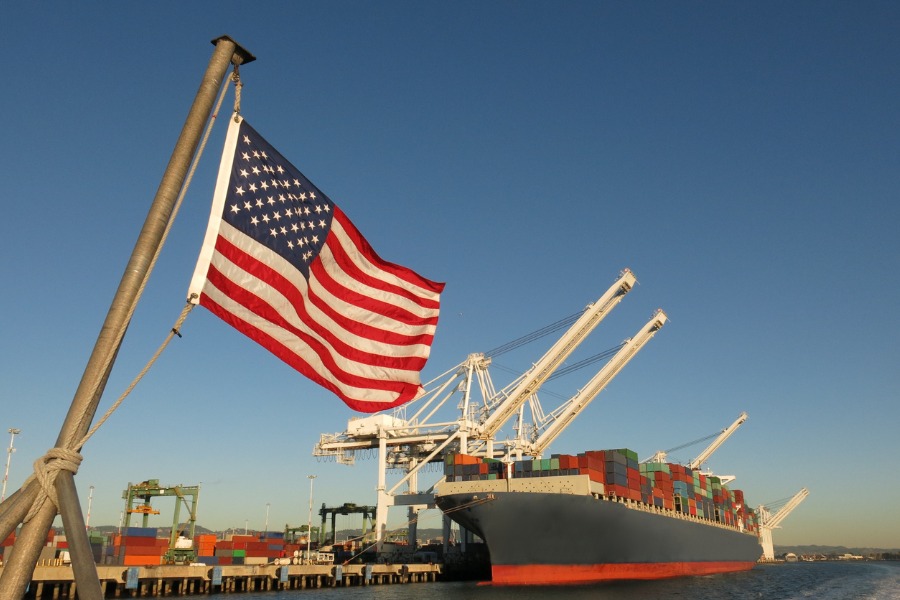

BlackRock is making its presence felt in the private infrastructure investing space as it leads a deal for a majority stake in key ports along the Panama Canal.
The deal valued at $22.8 billion would shift control of key shipping terminals on both sides of the channel from Hong Kong-based CK Hutchison to US-based ownership.
The transaction, announced Tuesday, is part of a broader sale that includes CK Hutchison’s controlling interest in 43 other ports across 23 countries.
As reported by the Wall Street Journal, the move comes after policymakers raised concerns over Chinese influence in the region. While the Panama Canal itself is controlled by Panama, foreign-owned ports on either side have drawn scrutiny in Washington. The Trump administration previously identified the Chinese ownership of these facilities as a strategic risk, particularly over fears they could be used for military surveillance or disrupt trade flows.
BlackRock has informed both Congress and the Trump administration about the deal, according to a source familiar with the discussions that spoke with the Journal.
In a speech during his January 20 inauguration, former President Donald Trump referenced the Jimmy Carter-era treaty that effectively relinquished control of the region to Chinese interests.
“China is operating the Panama Canal, and we didn’t give it to China,” he said.
However, Panamanian officials and former US military personnel have dismissed concerns that Chinese-owned port operations compromise the canal’s neutrality.
CK Hutchison framed the sale as a purely commercial decision, stating it attracted multiple offers.
“I would like to stress that the transaction is purely commercial in nature and wholly unrelated to recent political news reports concerning the Panama Ports,”Frank Sixt, co-managing director of CK Hutchison, said in a statement.
For BlackRock, the acquisition aligns with its broader push into private-market assets. Amid a buying spree that included private credit manager HPS and alternative investment data provider Preqin, the asset management behemoth snapped up Global Infrastructure Partners for $12.5 billion last year.
Along with other major asset managers like KKR and Blackstone – whose Blackstone Infrastructure Strategies fund successfully hoovered up $1 billion less than six months after its August 2024 launch – BlackRock CEO Larry Fink has stressed infrastructure as a key growth area, particularly as investors seek assets with stable long-term returns.
The Panama ports deal will see BlackRock, GIP, and Geneva-based Terminal Investment secure a 90 percent interest in Panama Ports, the company that owns and operates the ports of Balboa and Cristobal.
Separately, Bloomberg reported Tuesday that GIP is nearing the final close of a new $25 billion infrastructure fund, GIP Fund V.
According to inside sources speaking with the news provider, the fund is expected to reach its fundraising target in the coming week. It would stand among the largest in the sector, alongside Brookfield Asset Management’s $28 billion infrastructure fund raised in late 2023.
As a constructive outlook forms for the sector in the coming years, infrastructure fundraising has remained relatively resilient despite broader headwinds in alternative asset management. According to Preqin, global infrastructure funds secured $95 billion last year, just beating the $94 billion raised in 2023 but below the $142 billion average recorded from 2018 to 2022.
GIP’s latest fund, launched before BlackRock completed its acquisition of the firm in October, signals its continued focus on large-scale investments in energy, transportation, and digital infrastructure. The group manages approximately $170 billion in assets, with its portfolio companies generating an estimated $71 billion in annual revenue.

It's a showdown for the ages as wealth managers assess its impact on client portfolios.

CEO Ritik Malhotra is leveraging Savvy Wealth's Fidelity partnership in offers to Commonwealth advisors, alongside “Acquisition Relief Boxes” filled with cookies, brownies, and aspirin.

Fraud losses among Americans 60 and older surged 43 percent in 2024, led by investment schemes involving crypto and social manipulation.

The alternatives giant's new unit, led by a 17-year veteran, will tap into four areas worth an estimated $60 trillion.

"It's like a soap opera," says one senior industry executive.
RIAs face rising regulatory pressure in 2025. Forward-looking firms are responding with embedded technology, not more paperwork.
As inheritances are set to reshape client portfolios and next-gen heirs demand digital-first experiences, firms are retooling their wealth tech stacks and succession models in real time.
